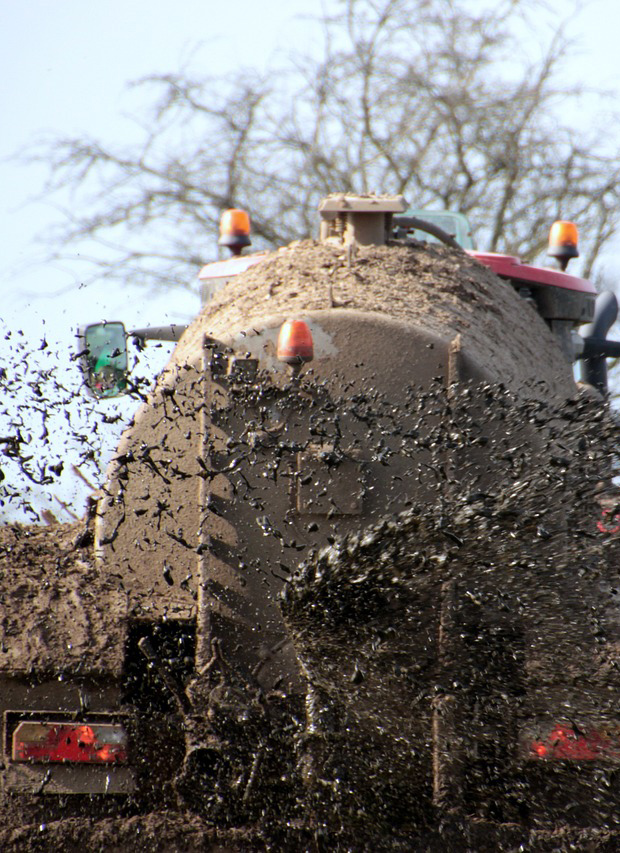
The slurry spreading close season in Wales runs from 15th October to 15th January.
Wednesday 16th October, 2024
A ministerial statement released yesterday has confirmed Welsh Government’s commitment to reducing pollution of Welsh rivers from slurry.
Huw Irranca-Davies MS, Deputy First Minister and Cabinet Secretary for Climate Change and Rural Affairs reaffirmed the closed period for slurry spreading (which started yesterday) and the reasons why it was introduced as part of the new agricultural regulations introduced in 2021.
The statement followed concerns raised last week by farming industry representatives and the agricultural press that farmers’ ability to spread slurry has been impacted by wet weather, leaving many storage tanks fuller than normal as the close season approached. Plaid Cymru’s rural affairs spokesperson, Llyr Griffiths MS was quoted in the Farmers’ Guardian as saying that this showed that “farming by calendar was not practical.”
The regulations have not come out of the blue for the agricultural sector. They were introduced by Welsh Government in 2021 because of climate change and the years of unsuccessful attempts to reverse the ever-increasing and unacceptable number of agricultural pollutions in Wales through voluntary measures. In yesterday’s statement is a reminder that “slurry mismanagement remains one of the main causes of agricultural pollution.”
It should also be remembered that the new regulations require farms to have five months of storage capacity to accommodate changing rainfall conditions during the slurry spreading “closed season.” This is just one month more than in the previous regulations.
Welsh Government have also made funding available (£52 million) to farmers to upgrade their slurry storage infrastructure. And while farming lobby groups protest that is nowhere near enough, the current round of funding was still open as of last week and yet to be entirely taken up.
Welsh Government have also made it clear what farmers need to do if they believe they are experiencing slurry management issues and that if they seek advice from Natural Resources Wales and follow it, this would be “taken into account in respect of any enforcement action”.
It is encouraging to see Welsh Government standing firm on commitments they needed to introduce following the failure of voluntary measures, despite coming under pressure from the agricultural lobby and from the opposition benches within the Senedd.
Working with the Welsh rivers trusts we have seen many farmers committing to changes on their farms in preparation for the new conditions that came into force yesterday. However, it is sadly also clear from reports this weekend, particularly in West Wales, that significant issues with agricultural pollution remain.
